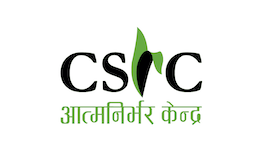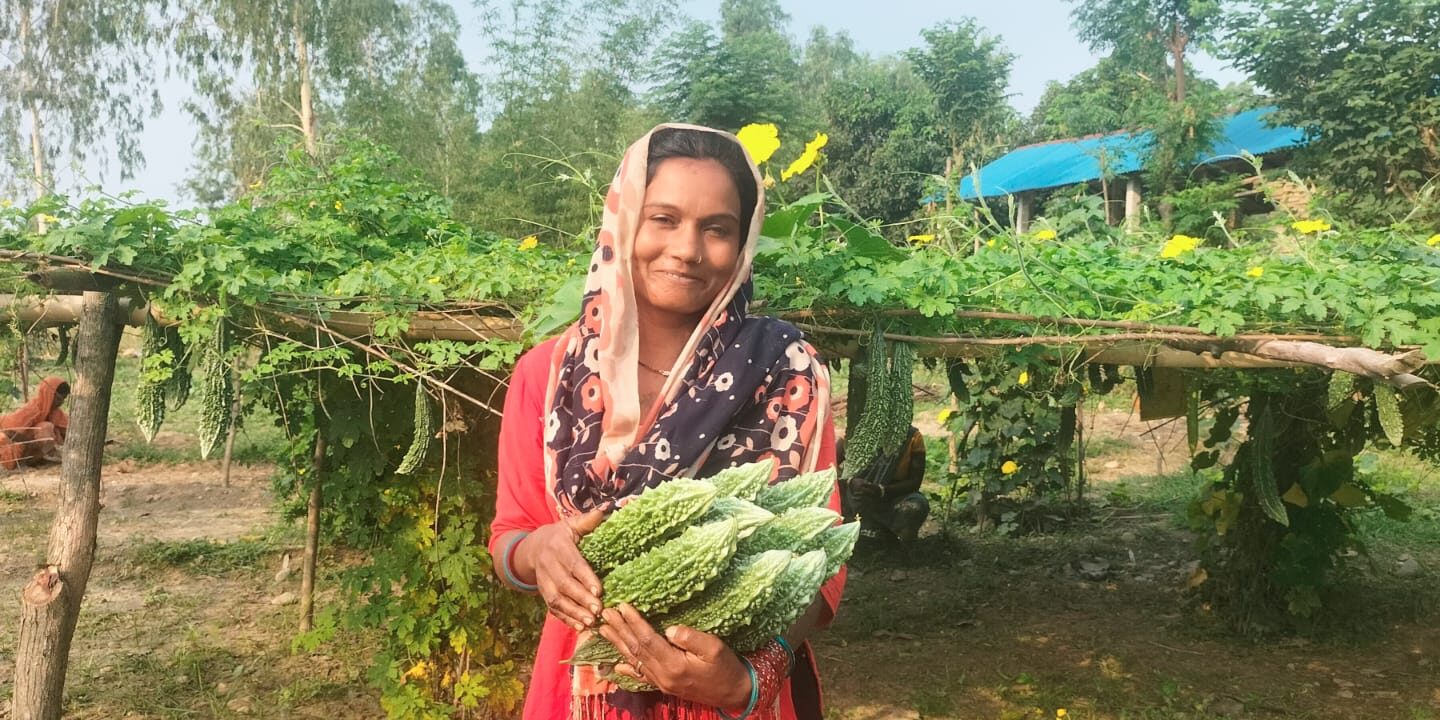Water Sparked a New Life in Naya Basti

Naya Basti, which literally translates to “new settlement,” consists of 23 households that were previously living in dire conditions in temporary shelters. Today, these families not only have roofs over their heads but have also been allocated small plots of land. They now have access to water facilities and are hopefully on their way to having the land registered in their own names.
Nestled in Ward No. 12 of Gaushala Municipality, Mahottari, Naya Basti was once known more for its struggle than its name. Though its homes were new, the village was parched, lacking access to something more essential than walls or roofs: clean, reliable water.
Every morning, families went to faraway villages, 1.5 kilometer away with pots and jars on their backs. Children were late for school, parents missed work, and simple hygiene became a luxury. Women bore the brunt of this hardship, waking before dawn to fetch water in darkness. Sometimes they had to wait until 10 am to get water, for many from the Musahari communities, the village well was a place not just for scarcity but exclusion, they were forced to wait, discriminated against by a rooted caste system.
Then came change
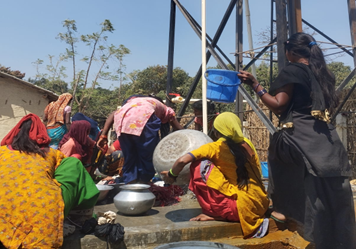
In collaboration with the District Land Rights Forum and the ward office, a deep boring water system was introduced. Suddenly, life was not just easier, it was flourishing. Community members planted vegetables, prepared meals on time, and returned to wage labor. But the system wasn’t perfect: water was still being wasted.
Recognizing this, a partnership between CSRC and WJR led to the construction of a drinking water tank in January 2024, offering clean, organized water access to 23 households. Water for both drinking and irrigation now flows with just the turn of a tap, clear, cold, and life-giving.
The effects were transformative.
Stories began to emerge – like that of Sunita Sada, who said
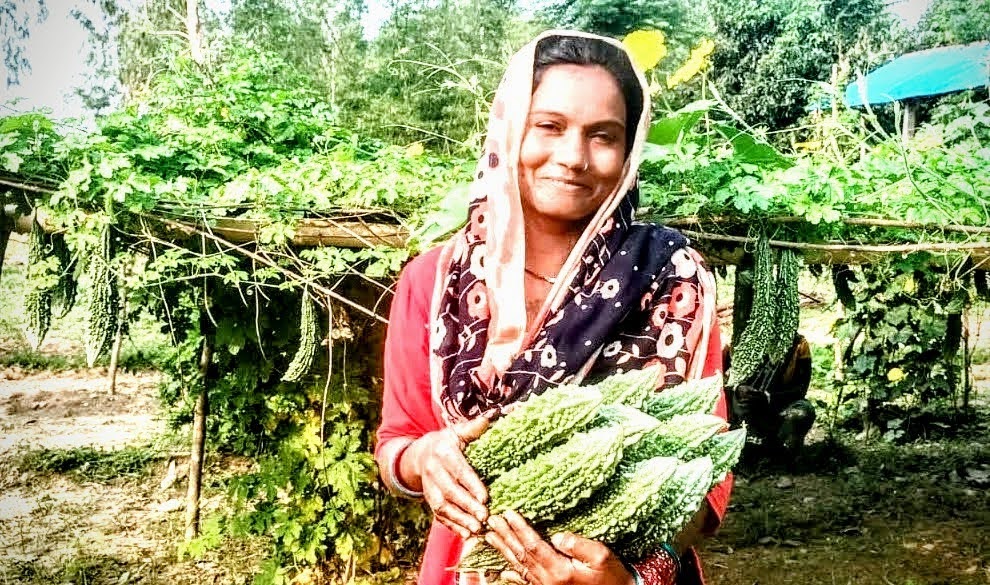
“Water hasn’t just helped our health; it’s become the foundation for our livelihoods. This year, I produced vegetables through climate-friendly farming, fed my family, and sold over NPR 10,000 worth in the market.”
The community members are now using bio fertilizers instead of pesticides, use of local seeds through the program’s orientation, regular follow up and technical support.
Others like Rani, Manju, Phulo Silam, Bina, and Ramprasad earned income through similar efforts with one household producing garlic to last a full year, and onions for up to 10 months. Families have also started planting vegetables in the remaining kitchen garden to support their livelihoods. Not just water, self-respect, time, and opportunity have settled. This small change has made life easier and more beautiful.
It wasn’t just economic, it was emotional.
Water gave back time, dignity, and opportunity. No longer did mothers fear the darkness of early morning water runs. Children left for school on time. Men and women headed to work with renewed purpose. With water came not just crops, but hope.
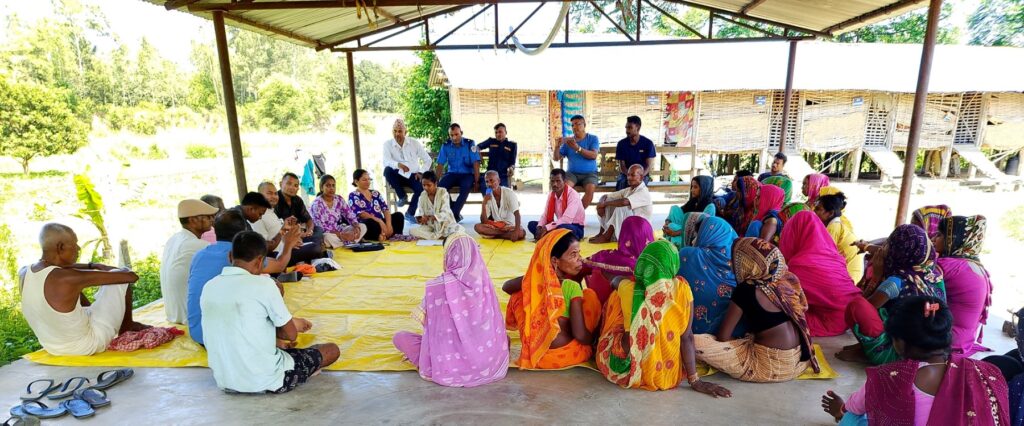
The community is thriving in many other ways; every week, they organize hold the land agri learning circle in the community hall. After receiving seed support from CSRC, the total seasonal income in Naya Basti has reached NPR 26,700. The community produced and sold vegetables, using the earnings to pay school fees and purchase essentials like rice, lentils, salt, and oil. A total of 26 children, 12 girls and 14 boys, from the new settlement are currently attending school. To protect the settlement, which is located behind the livestock shed, from animals like monkeys, 124 cement poles have been prepared for fencing. CSRC supported 50 bamboo fences for the enclosure. The remaining work was completed through voluntary labor contributed by the community.
From scarcity to self-reliance, Naya Basti stands as a shining example of how a small shift such as the arrival of water can nurture big dreams.
Written by: Rani Sah
Translated and edited by: Knowledge Management & Communications Unit
Photos by: Rani Sah & Aparajita Gautam
